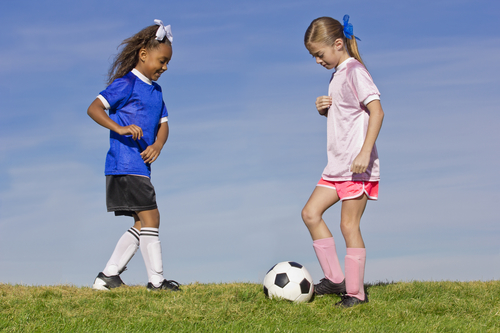The topics discussed in this blog are often inspired by questions from readers. This week’s topic of developing social skills is in response to such a question from a parent.

As you develop social skills, it would be helpful to identify the specific skill[s] that you and your child feels would be most beneficial. For instance, do they struggle in initiating conversations?
If so, then two strategies might be helpful that you can work on at home.
First, conversation starters or scripts might provide the support necessary to engage in this difficult social skill. More information can be found in a publication title: Life Journey Through Autism: An Educator’s Guide to Asperger Syndrome which is available as a free download at the following website: http://researchautism.org/
A companion strategy is video modeling.
Depending on the specific skills that you want to develop, you can either make, find or purchase videos that teach how to do that specific skill. I have found some quality videos on YouTube or TeacherTube. Another resource for purchase is available through Model Me Kids at http://www.modelmekids.com/.
In trying to provide information about programs that are evidence-based, I would like to share the following from the attached article titled:
Evidence-Based Social Skills Training for Adolescents with Autism Spectrum Disorders: The UCLA PEERS Program
In a previous randomized controlled trial investigating the efficacy of PEERS in improving social competence and friendship skills among high-functioning adolescents with ASD, results revealed that in comparison to a delayed-treatment control condition, adolescents in the treatment condition significantly improved in their knowledge of social skills, increased the frequency of get-togethers with friends, and improved in their overall social skills on the Social Skills Rating System as reported by parents. The present study reports the treatment outcome of a new sample of teens receiving PEERS, as well as durability of treatment gains after a 14-week follow-up period.
For comparison purposes, immediate change in social functioning and maintenance and/or improvement of treatment effects was examined among middle school and high school adolescents with high-functioning ASD following the implementation of the 14-week intervention. Modifications to the original intervention were also tested.
The current PEERS program was modified from the original version to include additional treatment modules necessary toward the advancement of friendship skills. These additional lessons include didactic training in: the appropriate use of electronic communication; online safety; strategies for handling cyber bullying; appropriate use of humor; long-term tactics for changing bad reputations; and strategies for handling rumors and gossip.
More information can be found at their website: http://www.semel.ucla.edu/peers.
You can also purchase a book on the PEERS Program at http://www.barnesandnoble.com/listing/2691526406018?r=1&cm_mmc=GooglePLA-_-Book_45Up-_-Q000000633-_-2691526406018.
Lastly, I would advise parents to consider reaching out in your community to see if there are others that would like to participate in a social skills group.
If a program does not exist in surrounding areas, then it might be a wonderful opportunity to create one by following some guidelines. You can find some helpful information at the following website:
http://www.iancommunity.org/cs/what_do_we_know/social_skills_interventions.
You can also purchase books that will provide guidance such as Social Skills Groups for Children and Adolescents with Asperger’s Syndrome A Step-by-Step Program or others you find online.
by Lisa Rogers
The Education (K-12) Blogs and Special Ed Q & A are written and maintained weekly by Lisa Rogers with Educating Diverse Learners. Lisa received her M.A. in Special Education with an endorsement in the area of individuals with severe disabilities. Mrs. Rogers has also created products that have been used throughout the state of Texas for training purposes. Through the Association for Texas Professional Educators [ATPE], Ms. Rogers has produced an online course that targets the importance of visual strategies for student with autism spectrum disorders and just released her highly anticipated book titled: Visual Supports for Visual Thinkers.


Heck of a job there, it abotlusely helps me out.